“Be true. Be brave. Stand.” A personal exploration of trauma and how horror has shaped and helped me process my past, present, and future.
We carry stories with us. We carry stories that might not be our own, but in them contain a sliver of our own souls. These are the stories that help us live, grieve, love, and grow. To see yourself reflected like that will never not be a kind of sparkling divinity, a constant beacon. It’s part of why we tell stories as creators and partake in them as audiences.
I can say as a writer, reader, and viewer that these stories have played a big part in helping keep me alive and how I have processed a past rife with loneliness and personal discontent. This is how I survived, and this is how I still cope — and how many others do as well.
I want to speak frankly about my past.
I’m not looking for pity or laurels placed on my head by telling me how brave I am. I simply want people to know that they aren’t alone in their suffering and give them some sort of commiseration. Knowing you aren’t alone in how you’ve felt throughout time and space as we know it has been a dear thing to me. I want people not to feel silly or stupid for loving the media that they love so deeply and finding sanity and healing there.
In my experience, that’s part of the greatest magic any book, film, poem, song, et cetera can have.
Having my thoughts and feelings and tribulations succinctly delineated in works of fiction, especially horror fiction, has brought to me comfort throughout my teen years and into my adulthood and has facilitated a large amount of my personal healing.
I was a viciously bullied child. I never did fit in, but for the most part, until around fourth grade, I fit in well enough to avoid any real conflict. It started as “little” comments at first. My appearance was the main target, but that soon grew into more and more. My weight, my looks, my taste in clothes, my personal interests, and anything you can imagine slowly started to be ripped apart throughout the years, culminating in complete ostracism in eighth grade to the point that attending school was an unbearable occurrence — and not in the normal sense that it is for a great deal of students.
The friends I’d had since kindergarten shunned me and became cold, joining in on the bullying I received. There was no one to trust and confide in. I shrunk in on myself and turned to books and film for comfort in those times. At lunch, when I finished eating, I would read as a way to shut out the world. Unsurprisingly, I got made fun of for doing that even. Everything I did felt like it was under a microscope and was up for ridicule.
The abuse was unrelenting, and it took place on a daily basis. I was never safe, not even at home.
Prank calls took place at all hours of the night on weekends and were so frequent that my parents had our phone tapped in an attempt to figure out which ones were perpetrating the calls. Online, I was heckled as well. Nasty instant messages were never in short supply, and I always found myself backed into a corner and struggling to find a place where I could be free from the mistreatment. Everywhere I turned there were only people who sought to hurt me.
When the students targeted me with harassment, some of the teachers and the administration sought to make it my fault, never doling out the punishment where it was rightly deserved. At one point, I broke down crying in class because I couldn’t hold in all my own negative feelings after a boy, one of the cohorts of my constant abusers, made a snide comment about me while I was fumbling to work on a math question at the dry erase board. The math teacher subsequently pulled me out of the classroom, and instead of punishing the student for his maltreatment of me, he told me, “You need to toughen up or they’ll eat you alive.”
I felt like I was the one who was wrong after that. That I was defective and somehow deserved what I was getting. In my sense of broken rationalization, all that was happening was my fault. Inevitably, that same boy would go on to spit on me only weeks after this event.
It all came to a proverbial head when my frantic and desperate mother scheduled an appointment with my pediatrician due to my affected mental state. My pediatrician, one of the few heroes in this story alongside my parents, came to the conclusion that attending school was a danger to my health and was doing more harm than good. I would be taken out of school for the remainder of the year and then would start to high school in the fall.
I was subsequently diagnosed with anxiety and depression and was prescribed medication at the age of 14. It was a small win for the time being, and my parents were all too happy to allow me to do school work from home in an attempt to remove me from the toxic environment.
During this time, I clung to my books and my films like a drowning person, because I was quite literally drowning in all the bad that had saturated my world. I would devour four or five books a week, tending toward young adult books with darker themes and paranormal twists. It’s not shock that, as a teen, I started to graduate to full-blown horror fiction as both a reader and a writer.
In the midst of all this pain and dreck, I remember my nascent obsession with Ginger Snaps, a 2001 Canadian werewolf horror movie.
I cannot tell you how many times I watched that movie during that period in my life.
It’s no surprise that I latched onto Ginger Snaps and the Fitzgerald sisters. They were outcasts, bullied and slogging through the same hideous awkward phase of life. I shared their same affection for black clothes and sense of dark humor. The film’s metaphors, aligning puberty with the transformation into a werewolf, spoke to me even in my youth.
More often than not, being a teenage girl feels tantamount to being a monster. It’s a time of truly uncomfortable transition, and thus, this movie reflected so much of my life at the time that it became a constant for me.
It was around that same time that I first watched Let’s Scare Jessica to Death.
And now that I am older and can look back on that first watch and the situations surrounding me at the time, I can tell you it was formative and important to me. To an extent, I was Jessica. I was experiencing mental unrest and was being tormented constantly, all the while, I was being constantly gaslighted by the school’s administration that was doing nothing. My pain was minimized, and I didn’t feel like I should feel it. I feared that I was losing my mind and that I was the one blowing it all out of proportion. Like Jessica, I was not getting the help that I needed from the people that needed to give it to me and were there to protect me when my parents could not.
Now that I am older and have lived with my mental illnesses for quite some time, the movie means even more to me because now I truly understand the constant fear of coming out of a major depressive episode and worrying that at any moment I could get bad again, that I could find myself back in the clutches of that blackened despair.
High school was better to an extent; however, there were new bullies and new toxic dynamics to be forged. I still very much lived in my world padded with books and movies to keep me afloat.
At around 15, I started developing an interest in foreign horror and happened upon a copy of the masterful Swedish vampire film Let the Right One In.
The quiet haunting beauty of Let the Right One In enveloped me upon my first watch and has yet to let me go. The film captures the loneliness of being a bullied child with such painful accuracy, and I was and still am completely enamored with the unique characters and storytelling that the film presents.
I can remember sitting on the floor beside the bed, sitting close to the screen transfixed. The barren iciness of Sweden’s wintery landscape mirrored Oskar’s loneliness and discontent, as well as my own. With the harsh came the tender in Let the Right One In. There was always the hope of connection, a life beyond that stark solitude.
A part of me lives in the moment I first watch that film indefinitely because I think I had begun the process of realization that my books and my movies were where a sense of comfort for me firmly lay.
The years came and went, and I want to peddle the whole fairytale idea that the situation truly got better, but it didn’t.
It was rife with panic attacks, anxiety attacks, never feeling safe at school, and bad reactions to literally anyone even mildly associated to the people who had bullied me were my reality. Off to the doctor I went again, and this time I came back with a diagnosis of post-traumatic stress disorder. I wish I could say I was shocked, but even at nearly 16, I had an inkling of what was going on with me.
Stinging betrayal and a slew of toxic and manipulative friendships came next for me, adding to my own catalogue of traumas that I am still striving to undo. I clung to people with desperation simply because I didn’t want to be alone. I had made myself into the worst kind of people pleaser, who would kowtow to routine verbal and mental abuse just so I would have a person in this life to call a friend. I believed I was so unlikeable and so freakish that no one would like me otherwise.
A moment that sticks out clearly is when I was extremely upset with something demeaning and cruel a friend at the time had said. She was the sort of person who believed all must revolve around her, and at 19, I was outgrowing my role of adoring sidekick whose sole purpose was to do and say as she so pleased and accept whatever carping commentary that was flung my way.
Tears streamed down my face as my mother suggested we watch a movie to get my mind off of it all.
I turned to my brand new copy of the 2013 Evil Dead.
I drank tea with my mother and cried and found solace in Mia’s story and the unrelenting bloodshed onscreen.
I found my catharsis with a cabin and a chainsaw.
Mia had to metaphorically kill one of the ugly parts of herself. Had she not risen to the occasion and started putting herself and her well-being before her addiction, before anything else she’d have perished. I started inching toward a sense renewed sense of autonomy in the years after shedding that one particular toxic friend, as well as a few others, and drawing close the ones that actively accepted me and wanted me to be a part of their lives.
College came with its own set of unique ups and downs, but nothing could prepare me for the intense and soul shredding experience that was the low of graduating and being thrust out into a world that would rip you apart with either cold indifference or maniacal glee.
I can say with the utmost confidence that job hunting is a depressing ordeal. Most potential employers will not contact you back, much less call you in for an interview. The rampant nepotism makes it all even more disheartening and difficult. When you have sparse connections in the world, your life is made all the more difficult. A significant portion of my post undergrad life was spent agonizing over applications and feeling like I was a failure.
It was a state of excruciating limbo that quickly shattered any sort of mental resilience that I had built up in my college years. It didn’t help that I was forced back to my hometown, a place that, if it weren’t for my parents and handful of good friends who are basically family to me, would have felt like a mausoleum for the potential of a mentally anguished young woman.
In the midst of all my setbacks, I threw myself into my own writings and made an attempt to be progressive in my maddeningly stagnant state. A short story and a screenplay came from those days. Both are, naturally, tales of horror, though they differ wildly. I used my own imagination and terror as an escape from all the negativity that was mounting in my mind.
Another bright spot during that time was the first season of Stranger Things.
I was living with my grandmother who had recently fallen and broken her ankle and needed around the clock aid and attention that my working parents weren’t able to give her. It was sort of a blessing in disguise that I hadn’t been hired for a job yet and wasn’t weighed down by the obligations of schooling. I would often sit on the couch with my headphones plugged into my laptop and watch two to three episodes of Stranger Things a night.
There were glimmers of myself in several of the characters. Mostly Joyce and Eleven. Joyce’s constant buzzing anxiety was akin to my own, but despite her anxious ways she found a way to get things done. Eleven’s status as the designated “freak” called to me. I understood what it was like to be the one on the outside looking in at a life I felt like I could never be a part of. The small sundry day-to-day things that would cause Eleven an onslaught of bad memories reminded me much of myself. It could be something little, something that was buried in my mind, a relic of a melancholic time that would send me in a spiral.
It was nice to see that in the end they could overcome and become the heroines of their own stories.
2016 bled into 2017, and I made the decision to try to make my limbo even more productive than it had been. I decided to go back to school and get my graduate degree online. I had settled on a degree in literature because it was where a good deal of my passion and prowess lies. I was struggling mentally all the while working on my classes and my creative writing.
During that time, I felt like the world had left me behind. I constantly compared myself to everyone I knew. The thoughts in my head began to echo the abusive words that I had heard in the past, throwing me into a constant negative feedback loop.
The 2017 reimagining of It came to me at a time that I needed it most.
I like to think that this was somehow intentional. That the greater fabric of the cosmos was looking out for me and knew that I needed to look back on my own trauma and heal much like the Losers were forced to do. I saw so much of myself in our seven lovable child protagonists. The movie felt like balm to my extremely tired soul.
There was horror and there were human atrocities on display that paralleled some of my own former torture, but there was also the abiding love of friendship and the promise that even if you’re an outcast that life can become something beautiful for you.
I was in awe of the film and became immersed in the world and characters that Stephen King so lovingly created. I decided to pick up my copy of It that was resting in my to-read pile and dive in to the full story of the Losers. At that point, we were almost two years away from there being a second film, and I had always planned to read the book. In fact, I had wanted to read it before the first film came out, but depression at the time had sapped a good deal of my energy and will to anything other than work on class work and perhaps write a page or two here and there.
King managed to put into words emotions that I had only felt. The loneliness, the PTSD spirals, the constant nagging whispers of words from the past that creep up when you’re mentally at your worst, and the feeling that you will always be that pitiful bullied kid, no matter what you achieve. There were passages I had to stop and read over and over just to soak in how much it paralleled my own experiences. Like Richie not long after getting his call from Mike being thrown into a state of pure mental disarray, desiccated memories of bullies flooding his thoughts.
I could have been the eighth member of the Losers.
I suspect many others feel this way, as well. We all could have been one of those children whose real life horror was somehow more wretched than a child eating clown.
We like to think that we’ve left the terror of childhood behind when we become adults. We like to think that when we turn eighteen and graduate high school and go out into the world that we have been born anew and that we can pack all those memories and events into a box and store them there and they will never bother us again.
That’s never the case. The past stalks us, like something hungry and primal and waits to devour us alive. It always comes back, and the best thing you can do is face it and consciously work through it all.
It, the creature, is a metaphor for childhood trauma and its insidious and cyclical nature.
Being in the throes of my own cycle at the time made the text all the more powerful and resonated with me deeply. It became intensely personal to me. I didn’t know that I was seeking healing at the time, but it became clear that I was purposefully led to It like I have been so many other books and films in my life when I needed them the most. I needed to be able to heal so I could move on with my life and become the person I was meant to be in spite of the trauma.
I wanted to take my healing a step further and affirm what I had already known about childhood trauma, particularly bullying. I decided to build my thesis paper around It and how King portrayed childhood trauma and how that portrayal spoke to his mastery as an author worth of merit.
King and most horror creatives have often been brushed off as merely a slice of pop culture junk food, not enough to sustain one’s mind and soul. I wanted to put into clear and certain terms that this was an erroneous mindset, and that King and other horror writers deserved a time to shine in the classroom and in criticism because many of their works had something deeper to say.
I delved into the realm of psychology to prove my point, pulling from many studies done by leading voices in the field. What I found was often heartbreaking but reinforced what I had lived through and what King had so diligently observed and recorded.
Bullying is as severe as parental abuse, and children who are bullied habitually are experiencing a form of abuse. Society largely brushes off bullying, not unlike they do with horror, and dismiss it as something that just takes place. You get told to cope and deal with it because it’s just a part of life. You spend years feeling like it’s all your fault, that if you weren’t so weird or such a freak maybe it all wouldn’t have happened.
A part of you feels trapped in the role of the bullied kid, the abused kid, the neglected kid, or whatever your trauma stems from. Sometimes the most revolutionary thing you can do for yourself is finally admit that what happened to you wasn’t your fault and that any of it happened and that it did happen and there are parts of you that are not okay and might never be okay.
I finished my thesis over It, and to date, it’s one of my favorite projects that I have ever done because I owe so much to that book and to horror in general.
It was my little gift back to Stephen King and other horror creatives by saying, “Hey, horror is worthy of academic study and merit and is nuanced in its portrayals of trauma and suffering.”
I’m happy to share with you that I got an A on the thesis and it was unanimously loved by the faculty at my graduate alma mater who read it. One of the professors, who was a reader, and I wound up having a deep discussion on how horror is a large part of the American gothic literature tradition, and he sent me the reading list for his American gothic literature class he teaches to undergraduate students. It was even more affirming to see someone so distinguished in my program reach out and tell me that he believed I was right about this overlooked and even reviled genre.
Am I one hundred percent okay now? No. I probably never will be because every day is a new battle. But I am learning to process my trauma and my life in new ways and move forward with a renewed sense of self and dignity that I never had before.
Horror has been a gift that has helped me in this journey to being this self-aware person who has accepted finally accepted the parts of herself that aren’t perfect or easy to discuss.
I made a conscious decision to, much like the Losers themselves and so many of my other favorite horror heroes and heroines, face the dark and the monstrosities of my past and my mind, and to put love and friendship forward and holding them and two of the most purely magical experiences we will ever have, and to embrace the scars of the past instead of denying what has made you the uniquely resplendent person you are today.
I reject the idea that trauma is beautiful. Trauma is hideous and unwieldy and ugly. But just because you lived through that doesn’t mean that you are that. Trauma is not beautiful, but the people who have survived it are.
I have come to realize that creative endeavors and people sharing them is one of our most powerful bonding experiences as human beings. It’s medicine, it’s hope, and it’s pure unbridled mysticism. Creativity is divinity in itself, and it is important for it shapes people and gives them comfort, an escape from life and characters and creatives to commiserate with their sorrows as well as their joys. We carry these stories and these people with us, comforts for the journey ahead and a beautiful reminder that even when we feel alone we’re not.
A quote from It: Chapter Two, not found in the book but riffs off one specific part in the novel, might say it best.
“See, the thing about being a loser, you don’t have anything to lose. So, be true. Be brave. Stand. Believe. And don’t ever forget, we’re losers, and we always will be.”






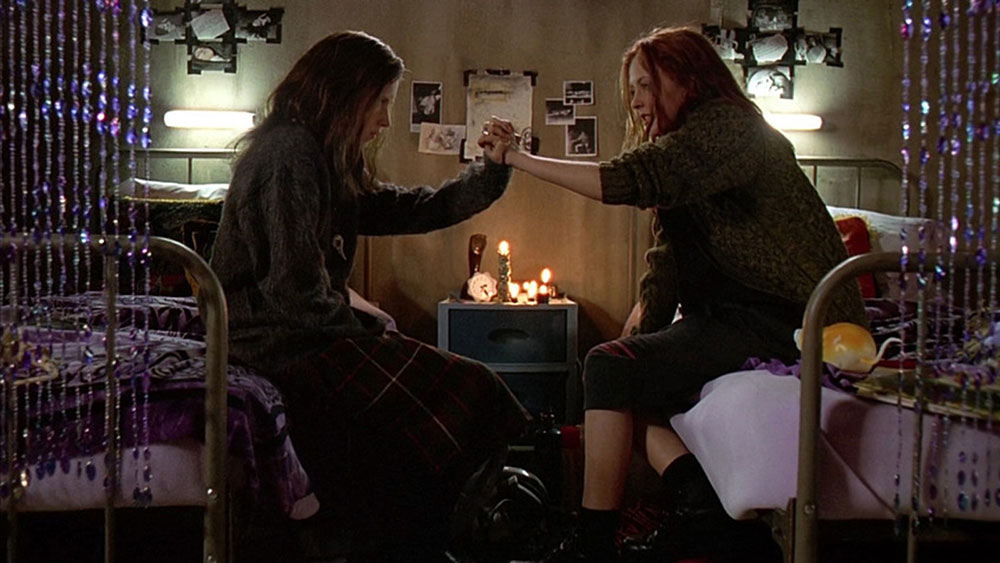

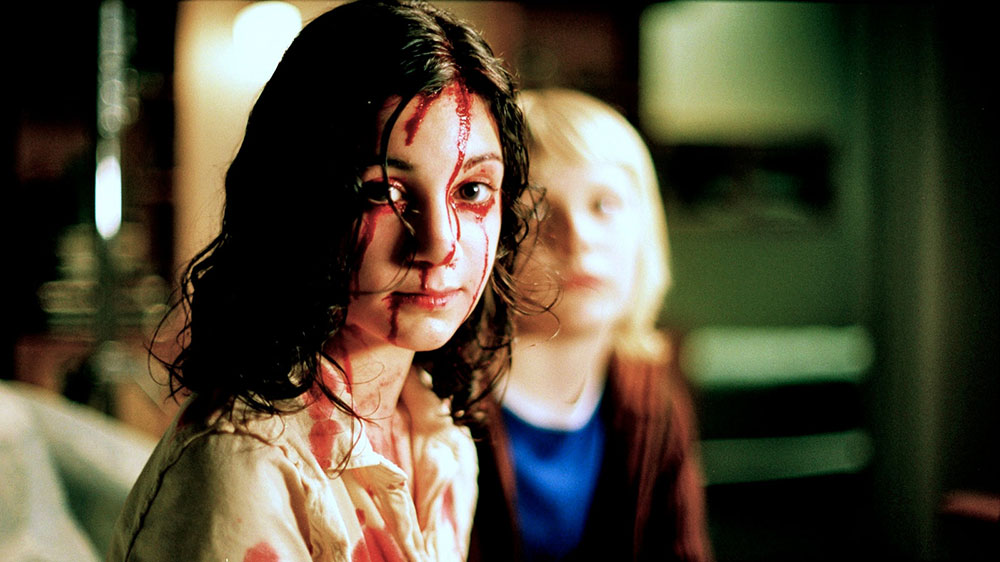


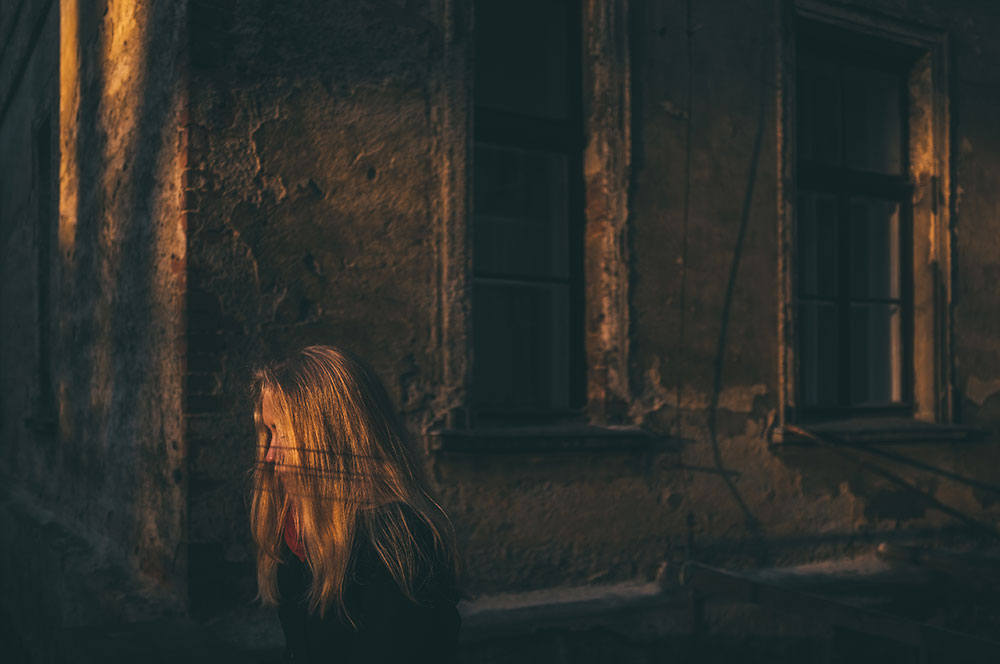
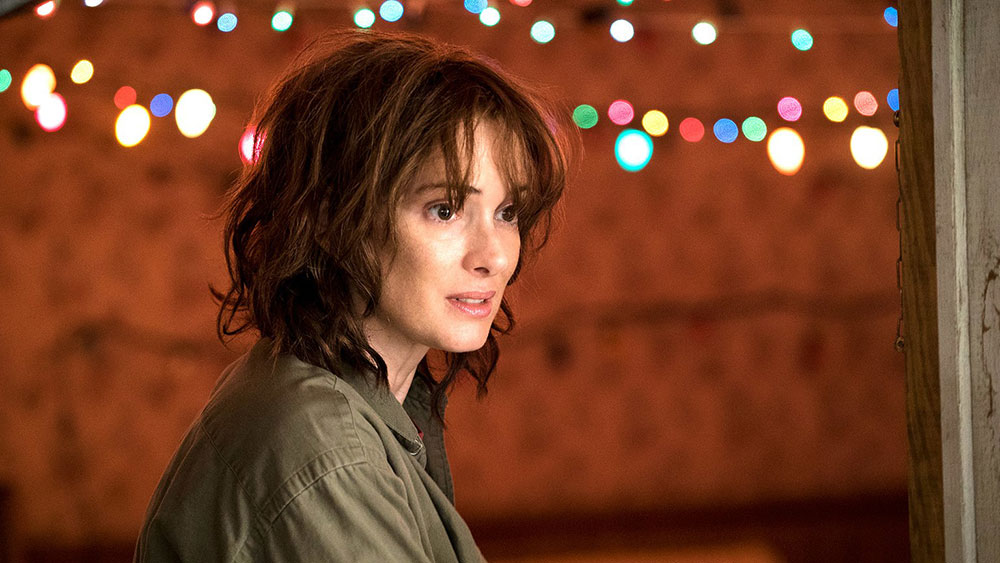
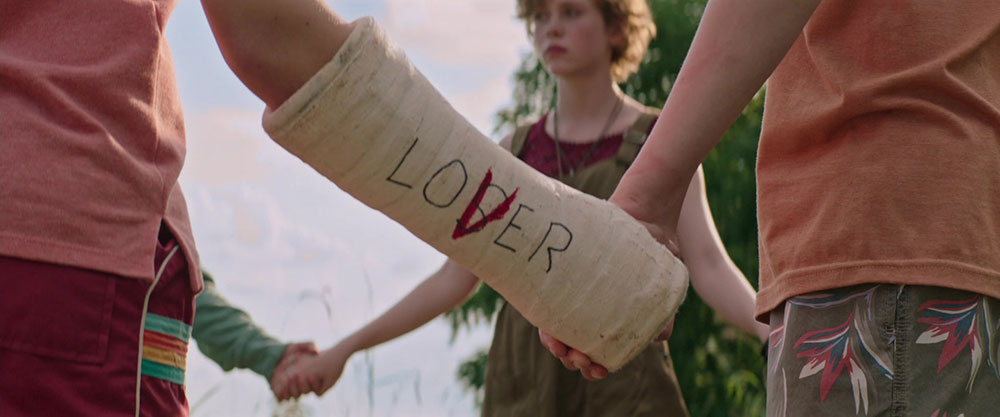
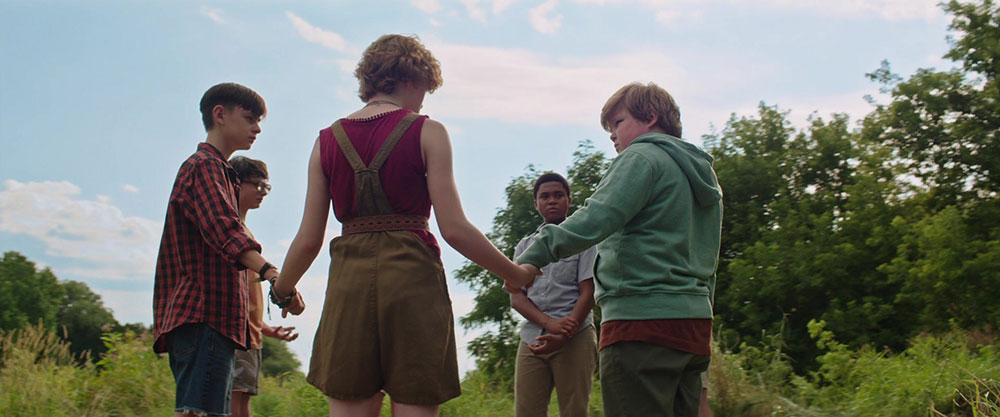

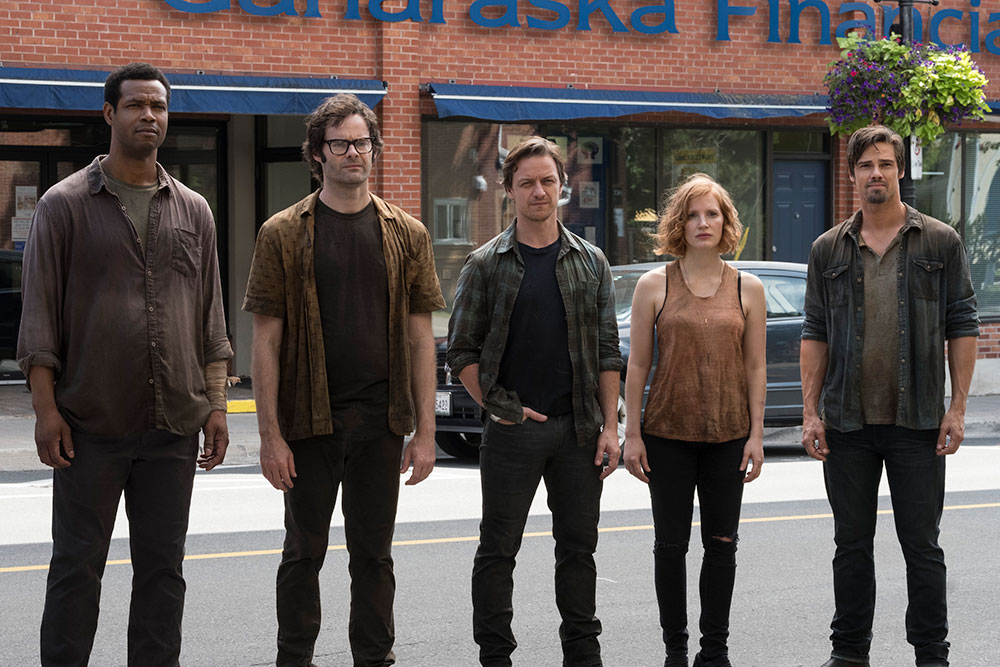



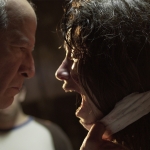
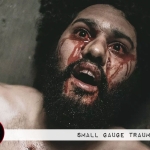
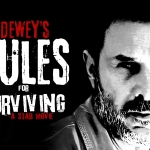


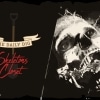


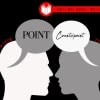
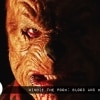




3 Comments
3 Records
Shiza Shahzad wrote:
Beautifully written.Extremely insightful. I loved how i was fully engrossed throughout the essay, Thankyou for sharing your journey.